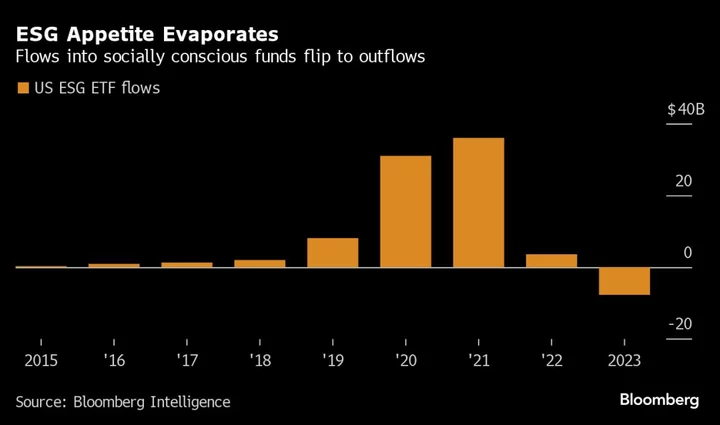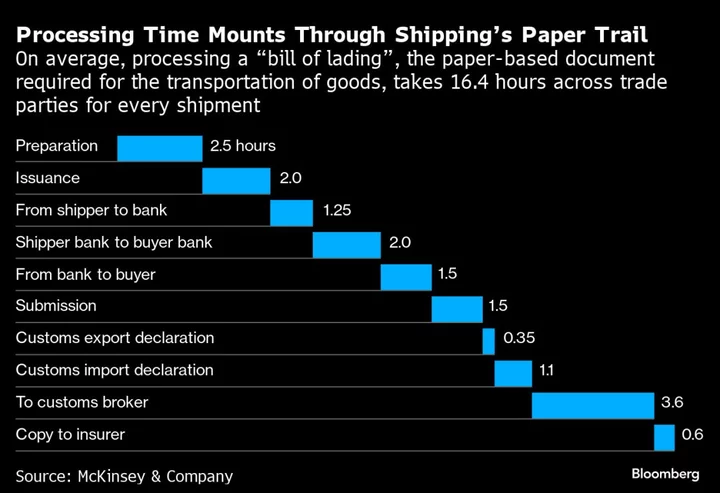Morgan Stanley anticipates a sudden pullback in corporate earnings will slam the brakes on a US equity rally, a call at odds with Wall Street estimates.
Instead, the investment bank is bullish on equities in Japan, Taiwan and South Korea and recommends an overweight position in developed-market government bonds, including long-dated Treasuries, and the dollar.
Earnings per share for the S&P 500 are set to drop 16% this year, according to strategists led by Andrew Sheets. That’s one of the most bearish predictions among those tracked by Bloomberg, and contrasts with bullish forecasts from the likes of Goldman Sachs Group Inc., which anticipates mild growth.
“We think that the downside risk to US earnings is now,” Morgan Stanley analysts wrote in a note published Sunday. “While a deteriorating liquidity backdrop is likely to put downward pressure on equity valuations over the next three months, we also see EPS disappointment ahead as revenue growth slows and margins contract further.”
Morgan Stanley anticipates that S&P 500 earnings per share will come in at $185, compared with a median $206 prediction from strategists. Sheets’s team sees the gauge at 3,900 at year-end versus Friday’s close at 4,282.37. The benchmark is on the edge of a bull market following a 19.7% rally from an October low, gaining amid enthusiasm for artificial-intelligence stocks despite rate hikes from the Federal Reserve and concerns about a potential recession.
Other recommendations from the bank’s strategists include defensive stocks, developed-market investment-grade bonds, and for yield-hungry investors a preference for additional tier-one securities — a type of subordinated bank debt — over high-yield bonds.
(Updates with more detail on MS’s recommendations in paragraphs two and six.)









